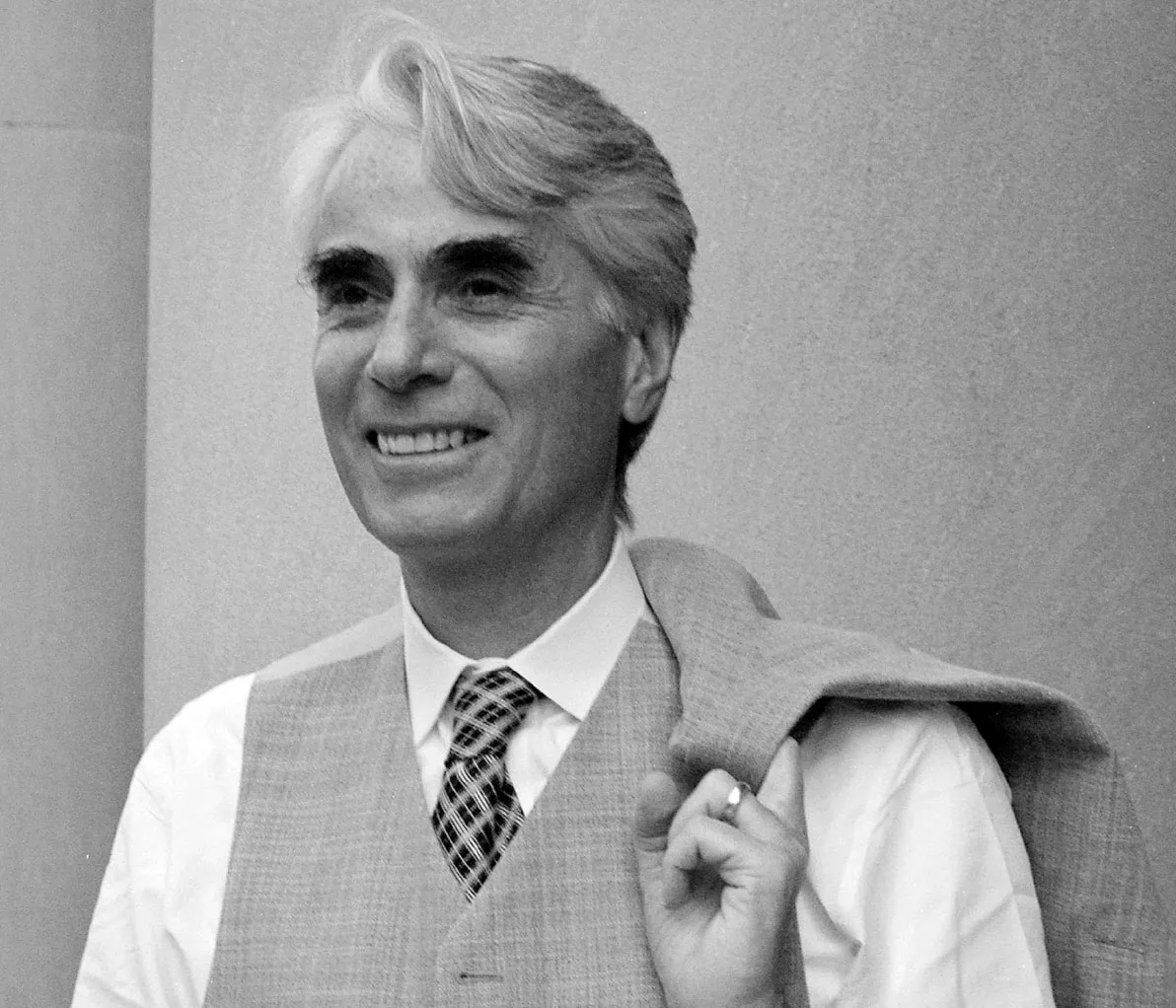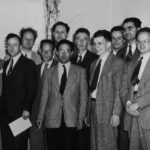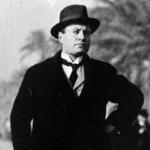Robert Nozick wasn’t your typical, tweed-clad philosopher. This Brooklyn-born intellectual was a philosophical firecracker, challenging deeply-held beliefs and turning conventional wisdom on its head with sharp wit and undeniable charisma.
But beyond his engaging personality, Nozick left behind a legacy of groundbreaking ideas that continue to shape how we think about freedom, justice, and the role of government in our lives. This article goes beyond the typical summaries of Nozick’s work, uncovering surprising facts and exploring the lesser-known corners of his thought to reveal the true depth and impact of this philosophical giant.
From Brooklyn to Harvard: The Making of a Rebellious Mind
Born in 1938 to Jewish immigrant parents, Nozick’s upbringing likely played a key role in shaping his lifelong commitment to individual liberty and skepticism of government overreach. This background, combined with an insatiable curiosity, led him to the hallowed halls of Columbia University and then to Princeton, where he earned his Ph.D. It was in these intellectual crucibles that Nozick honed his sharp mind, mastering the art of argumentation and developing a knack for dismantling seemingly ironclad assumptions.
Nozick’s intellectual journey eventually led him to Harvard University, where he became more than just a professor; he became a force of nature. Students and colleagues alike were drawn to his magnetic personality, his unique ability to make complex philosophical ideas both understandable and enthralling, and his genuine passion for challenging the status quo.
Beyond “Anarchy, State, and Utopia”: Unveiling Nozick’s Hidden Depths
Nozick’s 1974 masterpiece, “Anarchy, State, and Utopia,” catapulted him to intellectual superstardom. In this landmark work, he lays out a compelling defense of libertarianism, arguing for a “minimal state” that primarily exists to protect individual rights and enforce contracts. Any attempt by the government to go beyond this limited role – to redistribute wealth, for instance – was, in Nozick’s view, not only inefficient but a severe violation of individual freedom.
But Nozick’s brilliance wasn’t confined to the political arena. He was a true intellectual omnivore, driven by a restless curiosity that led him to explore a captivating range of philosophical questions. Here are just a few of the areas where Nozick’s ideas continue to spark debate and inspire new ways of thinking:
- The Experience Machine: Would you plug into a machine that could give you any experience you desired, even if it meant those experiences were nothing more than expertly crafted illusions? This thought experiment, a cornerstone of Nozick’s work, forces us to confront our assumptions about happiness, the value of authenticity, and what it truly means to live a meaningful life.
- Dismantling Utilitarianism: Many moral philosophers argue that the right action is the one that produces the greatest happiness for the greatest number of people. But Nozick wasn’t so easily convinced. He offered a powerful critique of utilitarianism, arguing that this approach can tragically overlook the importance of individual rights and reduce human beings to mere cogs in a societal machine.
- The Fierce Defense of Self-Ownership: For Nozick, the right to control one’s own body and life was paramount. He argued passionately for the principle of self-ownership, a concept with profound implications for issues ranging from healthcare and bodily autonomy to personal freedom and the very definition of what it means to be human.
Nozick’s Enduring Legacy: A Challenge to Think Differently
Even today, decades after his death in 2002, Robert Nozick’s ideas continue to ignite passionate debates in classrooms, courtrooms, and living rooms around the world.
His writings aren’t just for academics; they’re for anyone who’s ever wrestled with questions about what it means to live in a just and free society. Nozick’s work serves as a powerful reminder that there are always alternative ways to view the world, that the most widely accepted answers are often the ones most in need of rigorous questioning, and that the pursuit of truth is an ongoing journey, not a destination. By challenging the status quo and encouraging us to think differently, Nozick’s legacy continues to shape the way we approach some of life’s biggest questions.
What Makes Robert Nozick So Important?
Robert Nozick wasn’t content to simply analyze political philosophy from the sidelines. He jumped headfirst into the fray, challenging long-held assumptions and offering a radical vision of a world where individual liberty reigned supreme. Nozick’s most significant contribution was his unwavering commitment to placing individual rights at the very foundation of a just society.
Imagine a world where the government functions like a carefully restrained referee, its power limited to protecting individuals from harming one another and ensuring that agreements are honored. This is the essence of Nozick’s “minimal state”—a stark contrast to those who envision a more interventionist government actively working to redistribute wealth or engineer specific social outcomes.
Here’s a quick breakdown of why Nozick’s ideas are as relevant and thought-provoking today as they were decades ago:
- The Primacy of Individual Rights: Nozick believed that individuals possess inherent rights that are not granted by any government or authority but are inherent to their very being. These rights, he argued, must be the starting point for any just and moral society.
- A Government of Limited Means: Nozick was deeply skeptical of concentrated power, arguing that the role of government should be strictly limited to protecting individual rights and enforcing contracts. He saw any expansion beyond these core functions as a dangerous infringement on individual liberty.
- Challenging the Utilitarian Consensus: Utilitarianism, the idea that the morally right action is the one that produces the greatest happiness for the greatest number of people, has long held a prominent place in ethical thought. But Nozick challenged this notion head-on. He argued that by focusing solely on outcomes, utilitarianism could potentially justify actions that violate individual rights in the pursuit of “the greater good.”
Three Pillars of Nozickian Justice
Nozick’s theory of justice, sometimes called the “entitlement theory,” isn’t about engineering a particular distribution of wealth or resources. Instead, it focuses on ensuring that the process by which individuals acquire and transfer holdings (property, wealth, etc.) is just. It’s about the fairness of the journey, not the pre-determined equality of the destination.
Here are the three core principles underpinning Nozick’s vision of a just society:
1. The Principle of Just Acquisition: Imagine stumbling upon a vast, unclaimed wilderness. You roll up your sleeves, clear the land, plant crops, and build a home. Nozick would argue that you’ve earned the right to call that property your own because you transformed it through your effort while leaving enough for others to do the same. This is the essence of the principle of just acquisition.
2. The Principle of Just Transfer: Once you own something, you have the right to give it away, sell it, or trade it freely. This principle emphasizes the importance of voluntary exchange in a free society.
3. The Principle of Rectification of Injustice: Nozick recognized that the world is far from perfect. Sometimes, property is acquired through theft, fraud, or other forms of injustice. He believed in the need for mechanisms to correct these past wrongs, restoring holdings to their rightful owners or providing appropriate compensation.
Nozick’s Enduring Questions
Robert Nozick’s ideas remain lightning rods for debate because they force us to confront fundamental questions about the nature of freedom, the role of government, and what we owe to one another in a just society. He reminds us that:
- There are many paths to justice: Nozick’s work encourages us to move beyond simplistic solutions and grapple with the complexities inherent in creating a fair and equitable society.
- Individual rights matter: By placing individual liberty at the heart of his philosophical system, Nozick challenges us to carefully consider the potential consequences of policies that might infringe on those rights, even in the pursuit of seemingly noble goals.
- The pursuit of truth is an ongoing process: Nozick’s willingness to challenge conventional wisdom, to question the unquestionable, serves as a powerful reminder that intellectual humility and an openness to new ideas are essential for any society that values progress and understanding.
- Discover Long Black Pepper: Flavor & Health Benefits - April 25, 2025
- Shocking Twists: The Grownup Review: Unreliable Narration - April 25, 2025
- A Quiet Place Book vs Movie: A Deep Dive - April 25, 2025

















3 thoughts on “Astounding Facts About Robert Nozick: Outperforming the Competition”
Comments are closed.